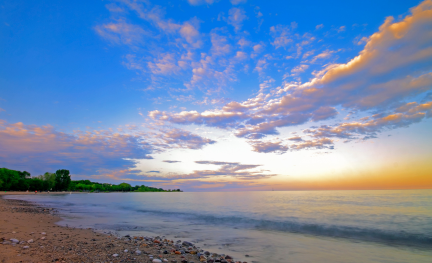
Freshwater Future Weekly News: July 14, 2023
Great Coffee Starts With Clean Water – Buy a Lead Water Testing Kit and Get a Free Bag of Coffee from Superior Coffee Roasting Co.
Delicious coffee starts with clean water. Superior Coffee Roasting Co. in collaboration with Freshwater Future and the Flint Community Lab are offering a lead water testing kit for $40 with the added bonus of receiving a complimentary 12oz. bag of coffee. If you’ve never had your home’s tap water tested for lead, now is the perfect opportunity to take action! You can purchase the kit through Superior Coffee Roasting Co. The kit includes testing supplies, instructions, and a box with free return shipping to the Flint Community Lab where your water sample will be tested for lead. After analysis you will receive a report from the Flint Community Lab. Take advantage of this great deal to indulge in the pleasure of a great cup of coffee from Superior Coffee Roasting Co. and gain information about lead in your drinking water. To purchase a kit, click HERE now!
Meet Two Freshwater Future Spring Project Grant Recipients Working On PFAS Pollution in the Finger Lakes of New York
Freshwater Future has been fortunate to provide over $5 million in grants for grassroots community organizations for over 27 years. Our Spring Project Grants were recently awarded and include two projects focused on addressing the impacts of PFAS pollution. Canandaigua Lake Watershed Association (CLWA) is working to understand and address PFAS in Canandaigua Lake, NY. CLWA will analyze lake foam for PFAS and develop and execute a PFAS awareness and advocacy campaign to promote policy changes that reduce PFAS entry into the lake. Nearby on another finger lake, Seneca Lake Guardian is protecting communities from known PFAS contamination. After the former Seneca Army Depot and New York’s largest landfill were both found to have dangerous levels of PFAS, Seneca Lake Guardian will provide PFAS Test Kits to residents with wells near the sites in order to protect communities and raise awareness about PFAS contamination in the watershed and throughout New York State.
Flood Focus App Helping Detroit, MI Neighborhoods with Flooding in the Streets
It doesn’t take much rain to cause flooding in certain Detroit neighborhoods. The Flood Focus App, created through a partnership between Freshwater Future and Earth Economics, is helping Detroit neighborhoods collect data and map flooding in order to identify solutions. West Grand Boulevard Collaborative (WGBC) used the Flood Focus App to document and investigate flooding on the road adjacent to the Detroit Public Library Duffield Branch. WGBC is now working with Freshwater Future to address blockages of storm drains from poor maintenance and construction as well as advocating for green infrastructure solutions, such as a bioswale. Cassandra Floyd of WGBC said of the work, “the northside of West Grand Boulevard accumulates stormwater and continues to stay flooded for days. This could be eliminated by developing a green infrastructure project that would combat flooding and beautify the area at the same time.”
Ohio’s Pollution Diet Doesn’t Go Far Enough to Clean Up Lake Erie
The Ohio EPA’s Maumee Watershed Nutrient Total Maximum Daily Load (TMDL) Report submitted at the end of June was meant to put Lake Erie on a pollution diet. Yet, local environmental advocates say the report fails to meaningfully address the sources of harmful algal blooms (HABs) and other impairments in the lake. Specifically, there are no targets for dissolved reactive phosphorus, the main pollutant causing HABs that derives from commercial agriculture. Rob Michaels, Senior Attorney at the Environmental Law and Policy Center points out, “The Ohio EPA plan is essentially a permission slip to keep spending massive sums of public money to encourage voluntary pollution reduction from agriculture, none of which have put a dent in the problem.” We cannot rely on encouraging voluntary pollution reduction from industrial agriculture to protect the future of our water resources, and plans that don’t create mandatory changes are bound to fail.
Share Your Community’s Needs to Restore the Health of the Great Lakes
This summer, the Great Lakes Restoration Initiative is developing the next version of the action plan that guides the project priorities for the next four years. To engage the people of the Great Lakes, the United States Environmental Protection Agency is hosting a series of listening sessions. Learn more and register for sessions here to advocate for your community’s needs from the Great Lakes Restoration Initiative!